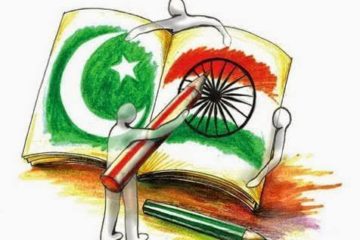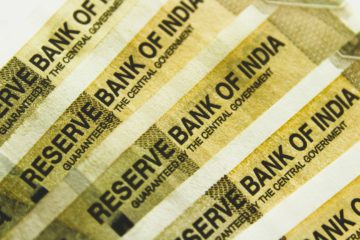Capital punishment & Mercy Plea
The Supreme Court of India has retained its stance on the Capital Punishment awarded to the convicts of the heinous Nirbhaya case even in the Curative Petition filed by them. One of the convicts has filed for mercy stating that he is the sole bread earner of his family. In this article, we will understand the procedure of a Mercy plea & the debates surrounding Capital Punishment worldwide.
What does a Mercy Plea mean?
It is the last ray of hope for any convict when he/she has exhausted all his chances with the courts of the country. Constitution of India provides special powers to the President to act on the mercy petitions filed by convicts under Article 72. Whenever the petition is filed, the President can do the following:
- Pardon: Scrap all the charges against him & he will be allowed to go free like a normal citizen.
- Commute: Make the punishment less harsh. Eg: Death sentence to life imprisonment.
- Remission: Reduce punishment without changing nature of punishment. Eg: 20 years imprisonment reduced to 10 years.
- Reprive: Delay the death sentence for a specific period. Eg: To allow the convict to set things right before execution.
- Respite: Reduce the degree of punishment in special cases. Eg: Old age, widow etc.
- Reject the petition
Though the above options are exercized by the President under his seal, it is not under his discretion to come to a decision. He must exercize the power as the Council of Ministers directs. More specifically, the Ministry of Home Affairs is the nodal authority to take decisions of mercy petitions & direct President accordingly. The Maximum a President can do is ask the ministry to reconsider the decisions taken and if the Ministry recommends the same again, he is bound to act over it. But there is no time limit prescribed in the Constitution for President to act on a mercy petition and hence nearly 100 mercy pleas are pending with the President (dating as back as 1990s).
With the process of Mercy plea discussed, it is necessary to understand why this exists considering the extensive criticism on social media on the Prolixious Judicial system of our country.
Capital Punishment Meaning :
It is not easy to reach to a conclusion of the question “Should the death penalty be abolished?” which remains and will remain a hot topic across the world. With countries abolishing capital punishments one by one, the pressure is mounting on India and few other countries which practice capital punishment to reconsider the nature of punishment.
The Law Commission of India and various commissions appointed by the Govt. have persistently recommended abolition of Capital punishment as it is purely based on vengeance rather than retribution and is a morally dubious concept. To this, the Supreme Court has stated that such punishment will be granted in the “Rarest of rare” cases. But the undefined “Rarest of rare” leaves a grey area in its exercize.
The main backing behind capital punishment is that it will act as a deterrent against the future committing of the crime. But the severity of punishment has to coexist with certainty and swiftness to act as a deterrent both of which are missing in the Indian Judicial systems. The lack of swiftness in judicial processes is not much of a flaw as the Indian principle of justice is not to punish a criminal rather it is not to punish an innocent.
Speaking in terms of numbers, a mere 5.3 cases are granted capital punishment for 1 Lakh murders! This brings out how arbitrarily it has been awarded. Coming to the next number: 93.5% of people in death row are from marginalised section of society shows how skewed the distribution is. We can say that capital punishment is much like those without capital get the punishment.
Hence, Constitution of India has provided for various safeguards even for convicts to dilute the factor of vengeance in the process of Retribution justice. Supreme Court itself which gave 60 death sentences from 2000-2015 subsequently admitted that it had erred in 15 of them and reverted its sentence.
Punishment should not initiate the crime and restorative and reformative justice are in need of the hour in our country. Constitution, legal & policy issues should not be determined by the victim’s understandable hunger for revenge. Justice delayed is definitely justice denied but justice hurried is always justice buried.

We, as citizens of India must stand by the principles and procedures established by the Constitution as it is a product of year-long efforts and contributions by one of the most eminent minds of that time. We must not take the freedom of expression given to us for granted and impose”googled”, “whatsapped” opinions on others. Things like suspicious encounter of Hyderabad which was applauded by the “Netizens” haunts the very existence of justice in India.
For more such articles, click here
-Shabaz Khan
Do not have a PAN CARD yet? Easy process by filling online application here-Get your PANCARD now!
Also, let us know if you want us to write on any particular topic. You may tell us the topic through the comments below.



4 Comments
Mera Bharath Mahan - Episode 7 Quiz – Wordanova Mera Bharath mahan · January 21, 2020 at 2:35 pm
[…] READ: CAPITAL PUNISHMENT AND MERCY PLEA […]
Mera Bharath Mahan - Episode 2 – Wordanova · January 21, 2020 at 2:43 pm
[…] READ: CAPITAL PUNISHMENT AND MERCY PLEA […]
Mera Bharath Mahan- Episode 6 Quiz – Wordanova · January 21, 2020 at 2:47 pm
[…] Capital punishment & Mercy Plea: Explained! […]
PSUs & its Privatization: An Analysis – Wordanova · June 7, 2020 at 6:18 pm
[…] of India (RBI) does? Rupee VS Dollar: HOW IT WORKS Article 370: All that you need to know Capital punishment & Mercy Plea: Explained! Categories: Mera Bharath mahan Tags: privatizationprivatization of government […]